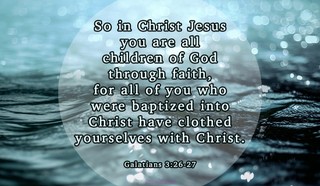
- Recent Translations
- All Translations
Jiālātaìshū 3:21
Share
Settings
Images for Jiālātaìshū 3:21

Jiālātaìshū 3:21 Meaning and Commentary
Is the law then against the promises of God?
&c.] If the law was added because of transgressions, and curses for them, and if the inheritance is not of it, but by promise, were it, it would not be by promise, then, says an objector, it is against the promises: these are contrary to one another, and God, in giving the one and the other, must contradict himself: to which it is replied,
God forbid;
a way of speaking the apostle uses, when he would express his abhorrence and detestation of anything, as here; for though the law and promises are distinct things, and have their separate uses, yet they are not contradictory to each other; the law has its use, and so have the promises; the promises do not set aside the law as useless on all accounts, nor does the law disannul the promises, but is subservient to them:
for if there had been a law which could have given life, verily
righteousness should have been by the law;
but the law cannot give life, spiritual life to a dead sinner; God only can do this, Father, Son, and Spirit; so far is the law from giving it efficiently, that it is not so much as the means of it; it is not made use of this way; God makes use of the law to kill, but not to make alive; he makes use of the law to strike dead all a man's hopes of happiness, by the deeds of it; but it is the Gospel he uses to quicken and comfort; that is the Spirit that giveth life. The law requires as much of a dead sinner, as it did of Adam in innocence, but gives him no life, activity, and strength to perform; could it quicken him, and enable him to do all its demands perfectly, then there would be righteousness, and so justification by it, as by the promise; whence it appears that there is no contrariety in the law to the promises: the reason why there is no righteousness is, because it cannot give life, spiritual life and strength; and if so, then not eternal life; which is the free gift of God, and not the merit of men's works: this is directly contrary to a notion of the Jews, who cry up the law as a life giving law; say they F14,
``great is the law, (hyvwel Myyx tntwn ayhv) , "for it giveth life to them that do it", in this world, and in the world to come:''and elsewhere F15,
``the law is a tree of life to all that study in it, (yyx Nwl bhyml) , "to give unto them life" in this world, and "to give unto them life" in the world to come.''
F14 Pirke Abot, c. 6. sect. 6.
F15 Zohar in Gen. fol. 70. 3. & in Num. fol. 62. 1.
